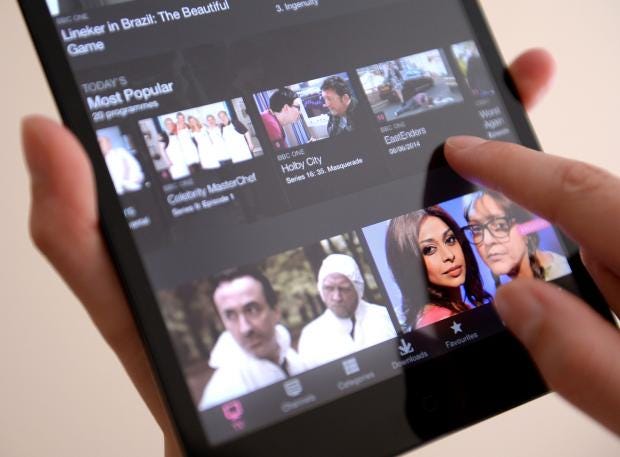
This article discusses the new plan to make BBC iplayer more personalized for audiences. This is a new move for the BBC, other media institutions such as Channel 4 on the other hand have had this feature for several years. However, the fact that TV licencing authorities will have access to the personal information due to the fact that users have to enter their postcode as part of the process may put many off from using these resources, on the other hand the BBC states that this will not be used for enforcement reasons. It could also be argued that this is just a form of enforcing the TV licence on users, however the BBC denies this. The BBC Director General Tony Hall has said that "By learning about what you want and like we can take you to more of the great programmes you love, stories you might be interested in and content you might otherwise never have discovered." Hall has also described the method as "a real transformation - reinventing public service broadcasting for the digital age."
- Up to now, only live content has been covered by the £145.50 annual licence fee, with online viewers having to confirm they have paid before they can watch a live feed of BBC channels.
- In July the government introduced legislation to close the loophole, which the BBC claims is costing it as much as £150m a year.
I think that this move by the BBC is quite interesting as in the past content was readily available without the need for login information. Furthermore, it could be seen as a tactic for BBC iplayer to reach the levels of Netlfix or Channel 4 for example, a personalised iplayer would bring in a greater audience and this would increase the funding for the BBC.
This article discusses how Broadcasters could face tougher penalties and “harder-edged” regulation if they do not improve diversity according to the Ofcom chief executive Sharon White. The article states that the television industry has made some progress since Lenny Henry, an actor, called for legislation in 2014 to boost the low numbers of black, Asian and minority ethnic people on and off screen, yet White said broadcasters are not yet doing a “good enough job” and that ofcom will “look at enforcements” if the issue is not resolved
- The number of black, Asian and minority ethnic (BAME) people working in the UK television industry falling by 30.9% between 2006 and 2012. They now make up just 5.4% of the broadcasting workforce,
Personally I do believe there is a decent amount of representation of minorities within the TV industry as this is required by the BBC for example. Although not all positive, I do believe that White has a point as this does not go for all channels. In terms of the workforce, I do believe that this depends on the person as not all people decide to go into the media industry therefore there may be a limited amount of diversity, on the other hand one could say that its due to discrimination.


No comments:
Post a Comment